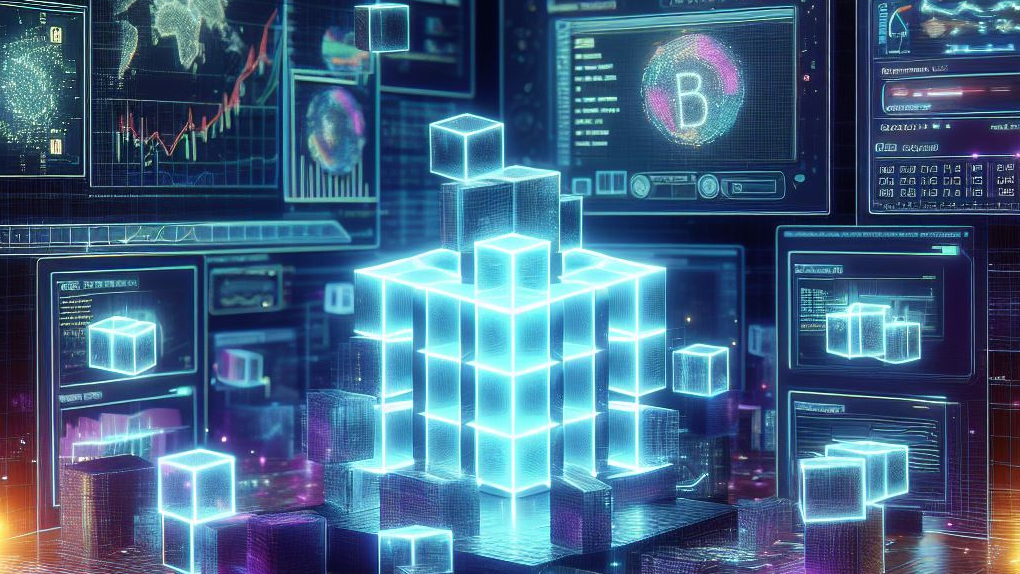a year ago
What Is a Token in Cryptocurrency?

Peeling back the layers of the fintech onion, we often stumble upon terms that initially may seem enigmatic. One such term, making waves in the world of digital finance, is the 'Token'.
As we dive into the topic, you'll quickly get the hang of this dynamic digital asset while we serve up a bite-sized breakdown of everything it encompasses. We’ll provide you with the details about the most significant aspects like “what is a token in crypto” and what its mode of functioning is.
What Is a Crypto Token?
Let's kick things off by coming to grips with the question of what is a token in cryptocurrency. It is a unique virtual currency token that lives on a blockchain. It represents an asset or a utility that's often specific to a company or an organization. They overarchingly stand for a value but that value varies depending on the context.
For example,
- Bitcoin (BTC): The original and most renowned crypto token.
- Ethereum (ETH): Not just a token but also a platform facilitating creation of other tokens.
- Uniswap (UNI): Governance granting voting rights in the Uniswap protocol.
What is a token system? Consider it as the building blocks in the vast digital landscape of the blockchain galaxy. These are more than just digital currencies. Instead, they are outstanding digital assets being held on a blockchain, designed to serve multiple purposes.
What is a token crypto associated with? They are often associated with a particular project or protocol and can represent several different things:
- They can be seen as an investment in a project.
- They can represent access rights to a service or a platform.
- They can be used as a digital indication of material assets.
- They hold utility within a specific platform (like voting rights).
- They can represent loyalty points for a network.
The mechanisms driving these explore technology to create highly versatile digital assets. While they've become synonymous with ICOs, their usage and integration within the tokenized platforms hold immense potential, leading toward a state of Web 3.0 (aka Decentralized Web).
To further clarify the different types, let's look at a simple comparison table:
|
Types |
Description |
Examples |
|
Utility |
These function within the native blockchain where they were made and depict access to services or products. |
Filecoin (FIL), Binance Coin (BNB) |
|
Security |
These represent investments in conventional acquisitions (like, say, stocks). They derive their value from an external asset. |
Blockchain Capital (BCAP), PolyMath (POLY) |
|
Governance |
These give holders the right to vote on decisions influencing the project. |
Uniswap (UNI), Compound (COMP) |
|
Asse |
They convey ownership or stake in an entity, or claim on its revenue or profits. |
Bitcoin (BTC), Ethereum (ETH) |
|
Non-Fungible (NFTs) |
They that represent something unique. Unlike cryptocurrencies, they aren't mutually interchangeable, each one being unique in its way. |
CryptoKitties, NBA Top Shot |
Cryptos are positioned to be the bedrock of a large swath of our digital lives, forming the backbone of the decentralized economy. Whether it's being a pioneer in democratizing investments or bringing transparency to supply chains, crypto tokens prove to be indispensable tools in our digital toolkit.
How Do Crypto Tokens Work?
Wondering how these operate? Well, you're about to find out. They essentially shoulder several roles depending on their purpose. They can represent any sort of tradeable asset, be it tangible like real estate, or digital like a service.
Let's delve deeper with an example. Consider an imaginary crypto token, let's call it 'ArtCoin'. This is a digital unit created by an art trading company. The utility of each ArtCoin could be tied to the value of a real-world art piece.
Therefore, by owning ArtCoin, the holder is basically holding a representation of that art piece.
Tokens enjoy the same level of security as the blockchain they live on. They're transparent, making their transactions easily traceable, and decentralized making them immune to single-point failures.
What Do All Crypto Tokens Have in Common?
Though they are as varied as the projects they represent, these digital entities share a few common threads:
- Digital Nature: They all exist in the digital expanse, devoid of any physical embodiment.
- Blockchain-Based: Each of them belongs to a blockchain, ensuring security, transparency, and decentralization.
- Tradeable Assets: All can be bought, sold, or traded on multifarious crypto exchanges.
- Utility or Asset Representation: The tokens symbolize an underlying asset or a utility, be it a service, voting rights, or physical goods.
Where Are the Tokens Used?
Tokens, being the essence of the cryptocurrency world, essentially rule the financial technological realm and have paved the way for a new age of economic transactions. But, where exactly are these tokens put to work?
The scope is expansive and penetrating diverse industries as we step further into the digital age.
Where and what are tokens used for? So, the environments that crypto tokens infiltrate are far-reaching and eclectic:
- Decentralized Finance (DeFi): Crypto tokens, like DAI, play pivotal roles in lending platforms, liquidity pools, and yield farming.
- Gaming: Like Axie Infinity's AXS or MANA from Decentraland are integral to blockchain gaming economies.
- Art and Content Creation: Platforms like Rarible use RARI to purchase and sell digital art, while Audius uses AUDIO to stream music.
- Tech Development: Projects often sell ones to raise funds for further development, akin to traditional shares in a company.
Let’s consider all the instances where tokens are applied to better understand their nature.
Decentralized Finance (DeFi)
DeFi is to finance what email is to the post office, revolutionizing the financial landscape with the infrastructural backbone of blockchain and crypto tokens. What is a token straight in DeFi? These — DAI or UNI — open the gates to financial transactions that are decentralized, transparent, and highly fluid.
Covering services like loans, insurance, and savings, they in DeFi platforms are utilized for:
- Liquidity mining
- Yield farming
- Voting in DAOs, and more.
Real Estate
What is the meaning of a token in real estate? The world of property is facing a digital 'token' revolution. 'Tokenization' is the process of representing real-world assets as digital tokens, and the real estate market has been quick to jump on this bandwagon.
Tokens can represent shares in a property, which can then be traded easily. The prohibitive and complex barriers of entry to real estate investing can be lowered dramatically using micro-investing via these tokens.
Gaming
With the burgeoning growth of online gaming, tokens have found a vibrant and dynamic playground. Gaming platforms provide in-game digital currencies, which can be used for:
- Purchasing in-game items
- Unlocking bonuses, and even
- Trading on dedicated marketplaces.
Games like 'CryptoKitties' and 'Decentraland' have pioneered this digital wave.
Art and Content Creation
What is the definition of a token in art? The creative world too hasn't escaped the token fascination. Digital art, collectibles, and music are being tokenized on the Ethereum blockchain, enabling artists to sell their work directly to fans.
Services like OpenSea, Rarible, and Foundation give artists the ability to tokenize their artworks, providing a new avenue for monetizing creativity.
Initial Coin Offerings (ICOs)
The fundraising arena has also found a friend in tokens. Startups often release their own ones to investors in exchange for cryptocurrencies like Bitcoin or Ethereum. These ones, akin to shares, are expected to increase in value if the company does well.
Supply Chain Management
Crypto tokens are playing instrumental roles in simplifying and streamlining supply chain processes. So, what does tokens mean for supply chain management? These can capture a product's journey right from its manufacture to its procurement by the end user, ensuring authenticity, reducing fraud, and facilitating traceability.
The use cases reach far beyond these examples, touching upon sectors like healthcare, identity verification, voting, and more. Their cross-industry influence is set to make them a force to reckon with, in our increasingly digital world.
Final Thoughts
To wrap things up, tokens are now carving out influencing roles across multiple industries with their versatility, security, and transparency. They've gone from being the underdog of the digital world to potentially its future.
Like learning any new concept, getting your head around this theme takes time but it's a phenomenon that's here to stay. Embracing this economy might just pave the way to a future, underpinned by greater autonomy, security, and efficiency.
So, there we have it, a peep into the riveting world of crypto, digital assets that have unleashed a staggering potential across industries.
Whether serving as a digital representation of an asset, lubricating the gears of a blockchain-based game, or fostering innovations through their trade, tokens have nested comfortably into multiple facets of our digital lives.
As we leapfrog through the 21st century, they look set to become the cornerstone of the rapidly expanding, constellating digital economy.
Industry analysis
How are Cryptocurrency Hot Wallets Different from Cold Wallets
What is USDT — Tether coin meaning in cryptocurrency
How to Buy and Invest in Bitcoin
Cryptocurrency Security in 2024
Difference Between CEX and DEX in Crypto
What Is a Crypto Exchange
The Biggest Crypto Scams of All Time
Difference Between a Crypto Exchange And Broker
Accounting for Cryptocurrencies
Types of Cryptocurrency Wallets
Stay informed about the latest news on crypto
Subscribe to our newsletter.








